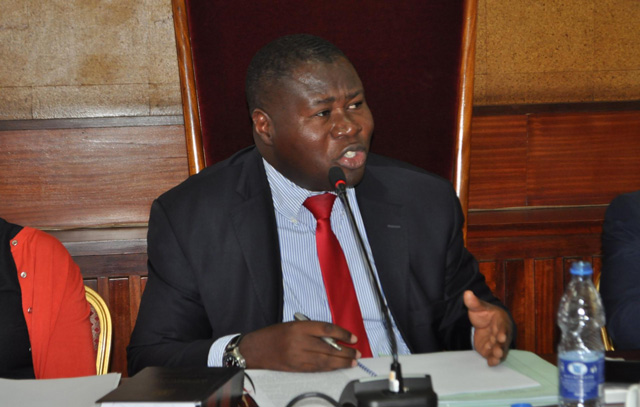
Kampala, Uganda | THE INDEPENDENT | The Legal and Parliamentary Affairs Committee on Thursday started reconsidering the Local Government (Amendment) Bill, 2019 recently returned by the President.
On Thursday, the West Budama South MP Jacob Oboth and chairperson of the committee met the Minister of Justice and Constitutional Affairs Ephraim Kamuntu and the Minister for Local Government Raphael Magyezi.
Last month, President Yoweri Museveni returned the Bill to Parliament with a request that particular provisions be reconsidered before he assents to it.
The President is mandated under Article 91 (3) of the Constitution to return a Bill in writing to the Speaker of Parliament for reconsideration.
Some of the provisions that were returned as an amendment are Section III of the Local Government Amendment Bill seeking to introduce qualifications for any person other than a chairperson of a sub county, an academic qualification of a minimum of a Uganda Advanced Certificate of Education (UACE) or its equivalent.
The President also rejected an amendment of Section 116 (1) seeking to introduce qualifications for a district councilor being a minimum of Uganda Certificate of Education (UCE) or its equivalent. According to the President, the introduction of these academic qualifications is discriminatory.
Kamuntu defended the President’s position saying that the framers of the Constitution intended wide participation and inclusiveness by the people even where qualifications are provided for.
“The Local Governments Act, Cap 234, currently has no qualifications for the chairpersons of urban divisions and town councils as well as district councilors. To introduce them under the proposed amendment would be discriminatory and would disenfranchise the aspiring leaders and voters,” said Kamuntu.
He added that power belongs to the people and that in order to allow equal participation and access to leadership positions, it is necessary that the academic positions are removed in the proposed amendments.
Kamuntu further explained that leaders play different roles at different levels depending on their qualifications citing the district chairpersons and deputies who must have a minimum of UACE and Chief Administrative Officers who must have a minimum of a university degree and not less than ten years working experience.
“This is because the above persons are responsible for guiding local governments, supervising activities at the district and monitoring the implementation of council decisions among other duties. It was therefore envisaged that the LC V chairperson and the deputy as well as the CAO would help in guiding the lower local leaders who may be possessing lower academic or no academic qualifications at all,” he added.
Kamuntu says that the introduction of minimum academic qualifications for these categories of people would not only be discriminatory but also disenfranchise many aspirants for leadership positions.
Magyezi also expressed reservations on the qualifications for councilors and sub county chairpersons agreeing with Kamuntu that it will disenfranchise the voters by denying them the right to elect leaders of their choice.
Kasilo County MP Elijah Okupa who presented a motion on the floor of parliament introducing the qualification amendments maintains that there is a need for qualifications but conceded to reduce the qualification for sub county chairperson to a minimum of UCE qualification.
Veronica Eragu Bichetero, the Kaberamaido County MP said that the Committee should stand its ground and maintain the qualifications set out saying that there are people able to meet the qualifications.
But Alex Byarugaba, the Isingiro South MP supports the President’s position saying that the amendments did not come from consultations initially made by the Committee.
Mitooma Woman MP Jovah Kamateeka and Busiki County MP Paul Akamba said that requiring qualifications does not in any way discriminate against anyone. He also said that the committee should retain the qualifications since there is no research that voters cannot vote for educated people.
******
URN
 The Independent Uganda: You get the Truth we Pay the Price
The Independent Uganda: You get the Truth we Pay the Price



